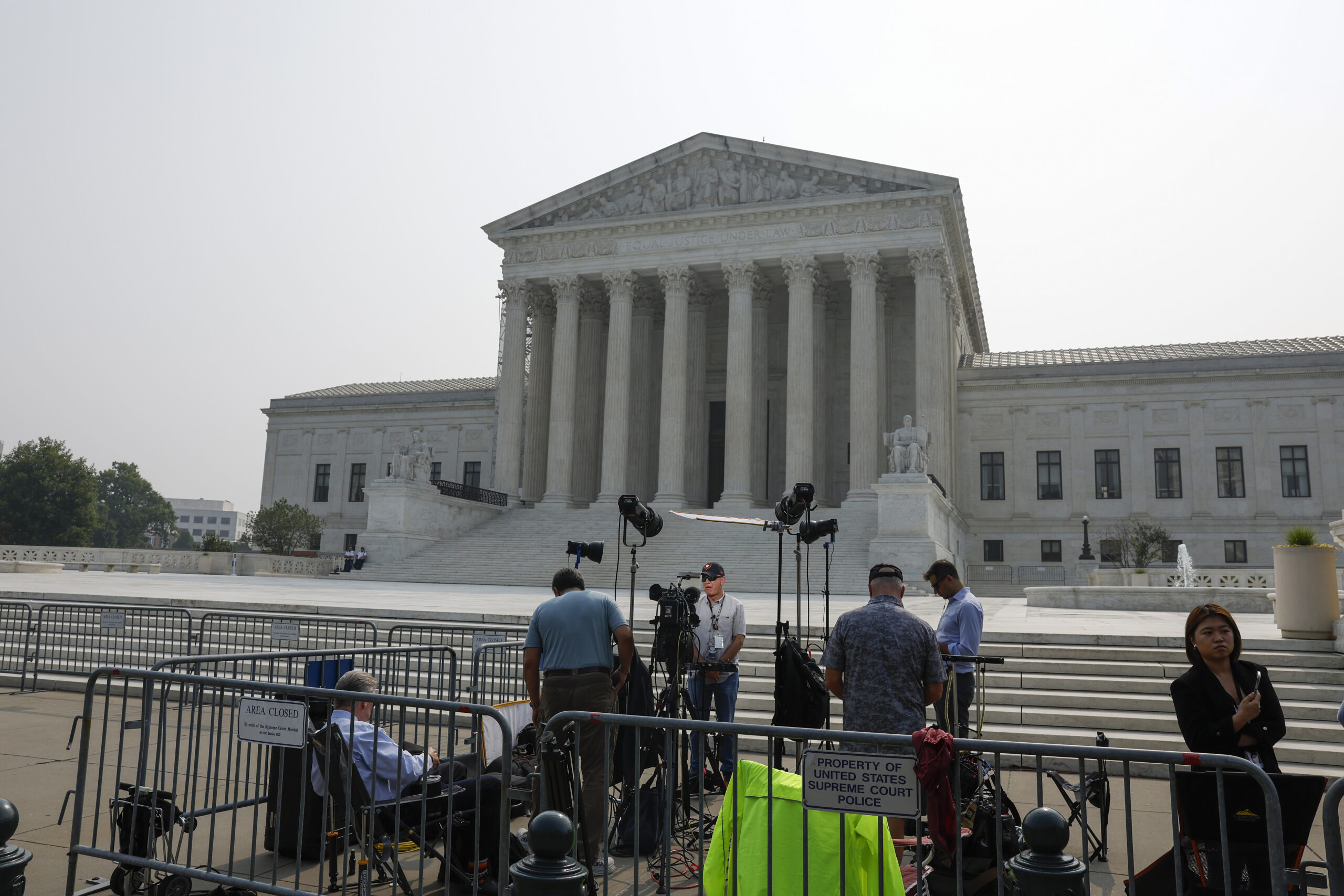On Thursday, the Supreme Court ruled to strike down affirmative action in college admissions. The decision to end affirmative action programs at the University of North Carolina at Chapel Hill (UNC) and Harvard reverses decades of affirmative action programs used by U.S. institutions to select students from their applicant pools.
Experts have already posited that the ruling could potentially make college admissions more subjective. President Biden said he is considering using executive action and will urge the Department of Education to find ways to maintain the country’s commitment to diversity.
As the news broke, Black women, including Michelle Obama and Whoopi Goldberg spoke out about the Supreme Court’s decision. The response continues as more and more people are reacting to the landmark decision.
Harvard President-Elect Claudine Gay
Harvard’s President-elect Claudine Gay released a statement through the school’s official social media channels. In her statement, Gay reiterated Harvard’s commitment to abide by the Supreme Court’s ruling while maintaining its commitment to advancing diversity.
“The Supreme Court’s decision on college and university admissions will change how we pursue the educational benefits of diversity, but our commitment to that work remains steadfast. It’s essential to who we are, and the mission that we are here to advance,” Gay said.
At the tail end of her speech, Gay who is set to officially become Harvard’s 30th president come July 1, promised aspiring future Harvard students that the school will continue to open its doors to people from all walks of life.
“To our future students,” Gay said, “know that we want you here. We are eager to welcome you to our community.”
Roxane Gay
Renowned writer and publisher Roxane Gay took to Twitter to share a brief comment regarding the Supreme Court’s decision. In a two-part tweet, she wrote, “The thing about today’s decision is that you’re still not going to get into an Ivy. That’s something we should talk about loudly. What will you blame next, I wonder.”
Keke Palmer
Actress and singer Keke Palmer also took to her Tiktok to comment on the politically demotivating state of things in the country including the Supreme Court’s latest ruling. She particularly directed her message to millenials like herself.
“What is the point of doing all the work to get things done, when nothing changes,” the 29-year-old asked in her video.
In her Instagram caption, Palmer also wrote, “How can we keep going like this? I’m down for whatever and ready to roll with all the punches cause in the end the good always wins but there are some serious holes in the system and it gets to the point where something has to give.”
Nikole Hannah Jones
Award-winning journalist and creator of the 1619 project, also took to Twitter to share her thoughts on the ruling. In a Twitter thread, she referred to the ruling, as “intentionally obtuse.”
“A program originally designed to address the specific, explicit racism against enslaved Africans & their descendants is not racist against other groups. This is an intentionally obtuse & convenient way of evaluating policies in nation where only 1 grp experienced chattel slavery.”
A program originally designed to address the specific, explicit racism against enslaved Africans & their descendants is not racist against other groups. This is an intentionally obtuse & convenient way of evaluating policies in nation where only 1 grp experienced chattel slavery.
— Ida Bae Wells (@nhannahjones) June 29, 2023
Jones went on to write, “It is laughable to believe that the group who architected and benefited from the police’s explicit racial exclusion are the appropriate ones to determine when enough has been done to mitigate the harm of those policies.”
Jemele Hill
Writer and Podcaster Jemele Hill shared her thoughts via Twitter as well. She commented on the Supreme Court’s ruling as well as the perception of special treatment as it relates to college admissions.
“34 percent of Harvard students are white,” Hill wrote in a tweet. “43 percent of those students are either legacies, children of faculty, kin of donors or a recruited athlete. 75 percent of them would not have gotten in if not for special status (National Bureau of Economic Research). But when in doubt, blame the Black people!”
